The Chinese land where women still rule
Near the Tibetan border on the shores of Lake Luguhu in the Himalayas, a small-numbered Moso people live. The culture and way of life of the Moso are original and unique in that they are practically not affected by modern trends, although, as the old-timers of the area note, everything is going exactly to this. And the main distinguishing feature of the tribe is that the dominant place in society is occupied by a woman. It is a woman who solves important economic and family issues, inherits through the female line, a woman can have several "coming" husbands, whom she chooses out of love, without coercion.
During the filming of the documentary "The Last Matriarchy of China", the correspondent of the Broadly edition, Mylene Larson, lived for a week on Luguhu Lake in a family of Moso women, learned about their unique culture and the realities of the matriarchal lifestyle.
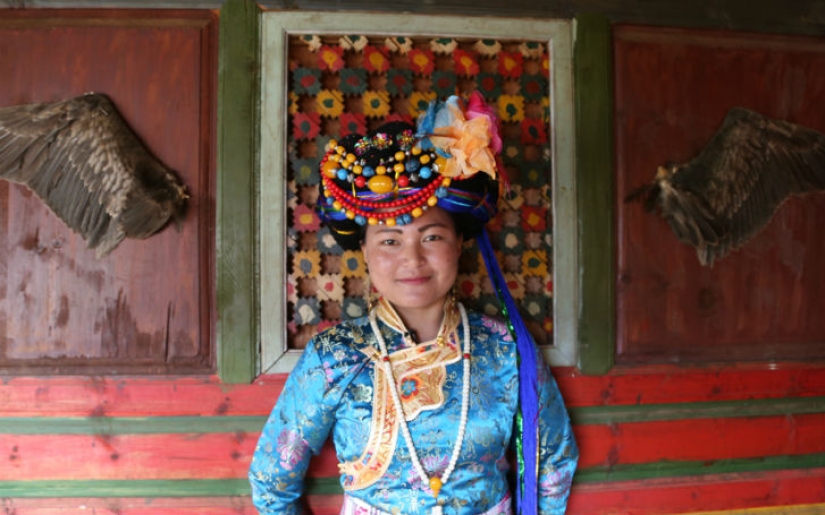
A 23-year-old woman named Lamu stands near the door to her bedroom, which the Moso call the "Flower Room". In their culture, only women of childbearing age have their own room, whereas their lovers come to them only at night and leave at dawn.
Luguhu Lake is located at the foot of the Himalayas. The population is about 40 thousand people. Thanks to the isolated area, the tribe was able to preserve a unique way of life and traditions that have been observed for many centuries.
Moso does not have a generally accepted concept of family and fatherhood. Often neither the mother nor the child himself knows who his father is. Instead of a traditional marriage, it is a guest marriage, where the partner can live either at home or with his beloved.
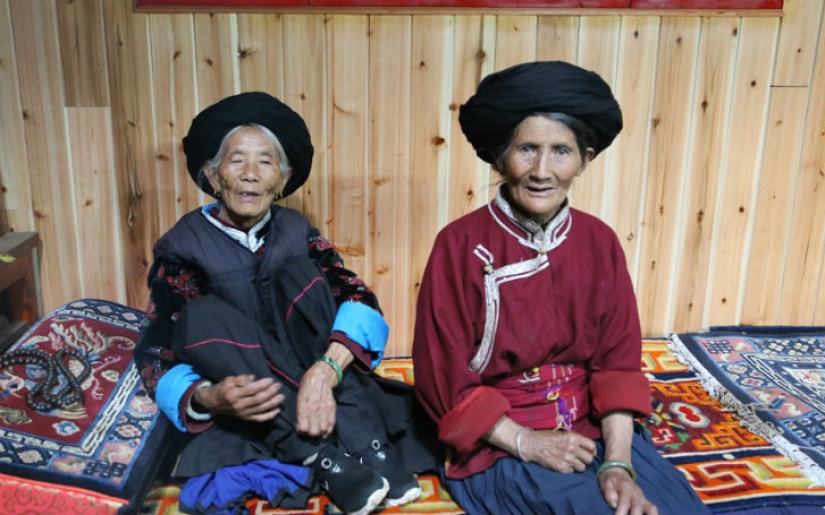
Grandmother and mother of the family in which the correspondent lived. Several generations live in the same house with their brothers. All women help in raising children, they are the breadwinners of the family. Men usually go to sell what women have grown in the fields, or do construction work around the house.
A man in a guest marriage visits his beloved only at night, and in the morning returns to his sister's or mother's family. Interestingly, it is usually the brothers of the head of the family who take care of the children.
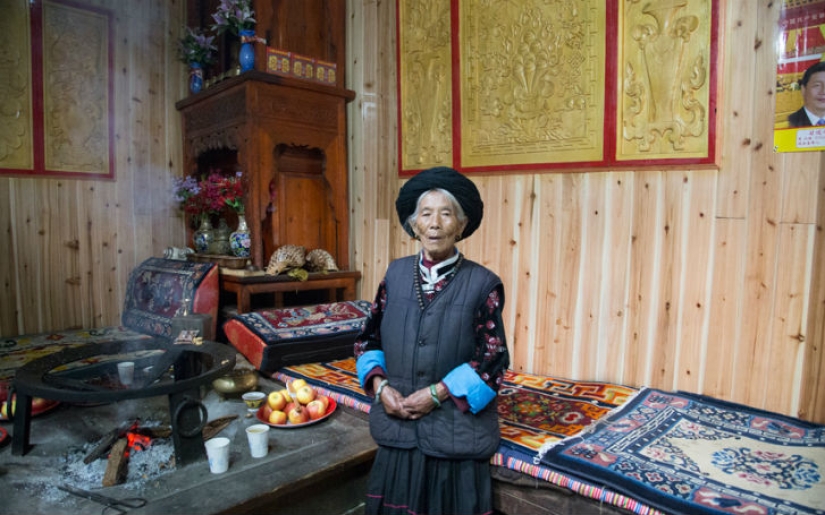
The Lamu's grandmother is in a room that serves as a living room, a kitchen, and a temple. The room is usually filled with containers of tea, rice wine, apples, sunflower seeds and nuts. Grandmothers are the most respected and revered members of society.
In fact, mosos are monogamous, but the traditions of guest marriage imply that a partnership can be broken at any time, and women, like men, can have several lovers in a lifetime.
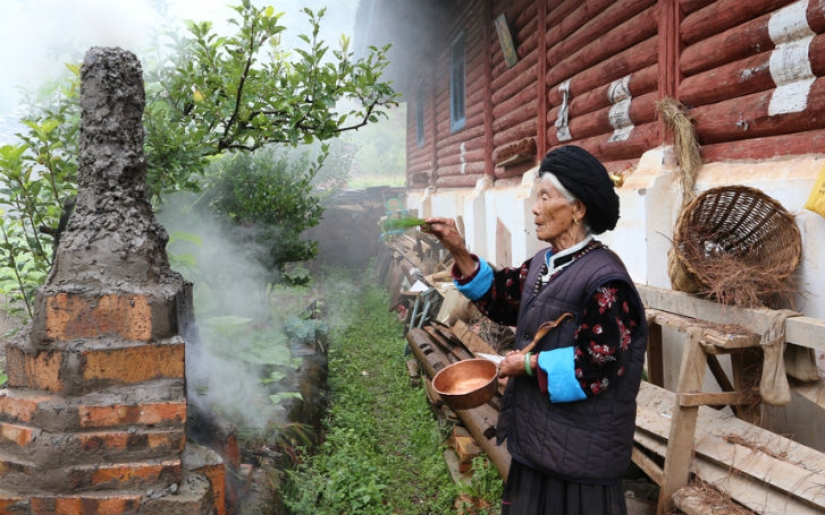
The grandmother of the Lamu family sets incense on fire. Even the religion that occupies a significant place in the life of the Moso is unique — it is a mixture of their own faith "daba" and Tibetan Buddhism.
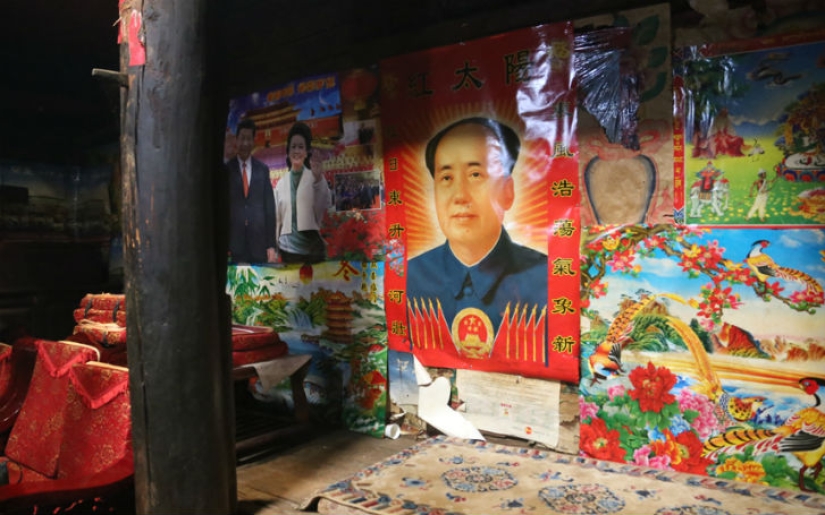
Often the walls of houses are decorated with portraits of Buddha and Mao Zedong. The Chinese politician is revered and respected here, because thanks to him, the standard of living has significantly improved — electricity has been installed in this remote corner of the Chinese land and railways have been laid.
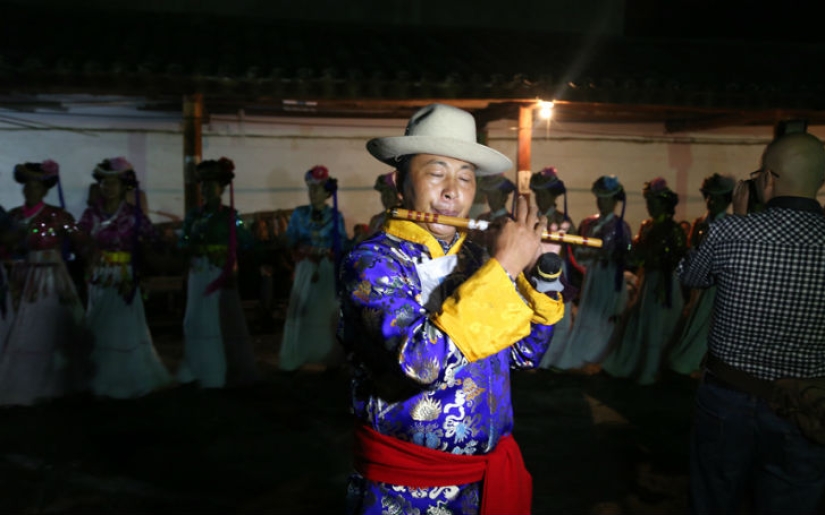
Flutes, drums and folk songs can be heard at traditional moso dances.
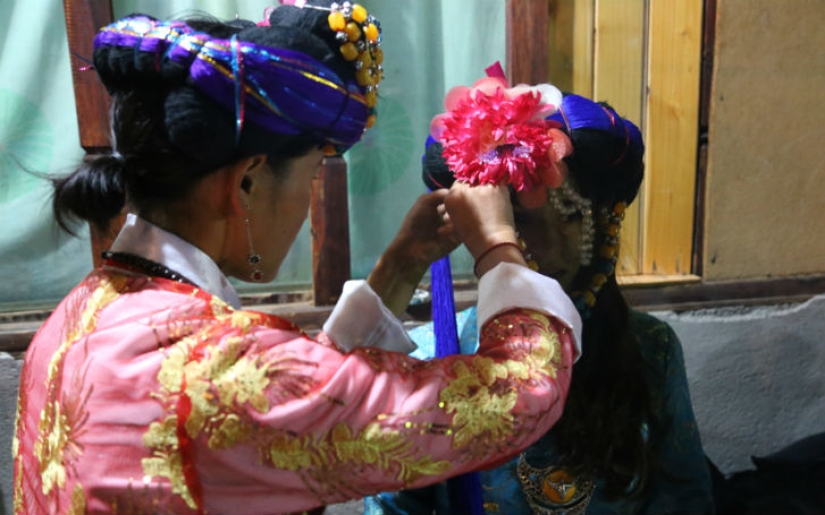
A Moso woman dresses up correspondent Mylene Larson in a traditional costume.
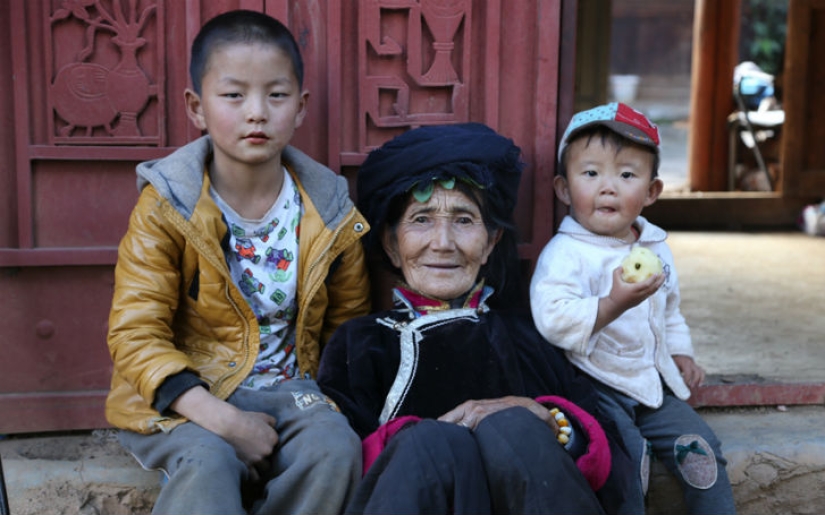
A grandmother with her grandchildren.
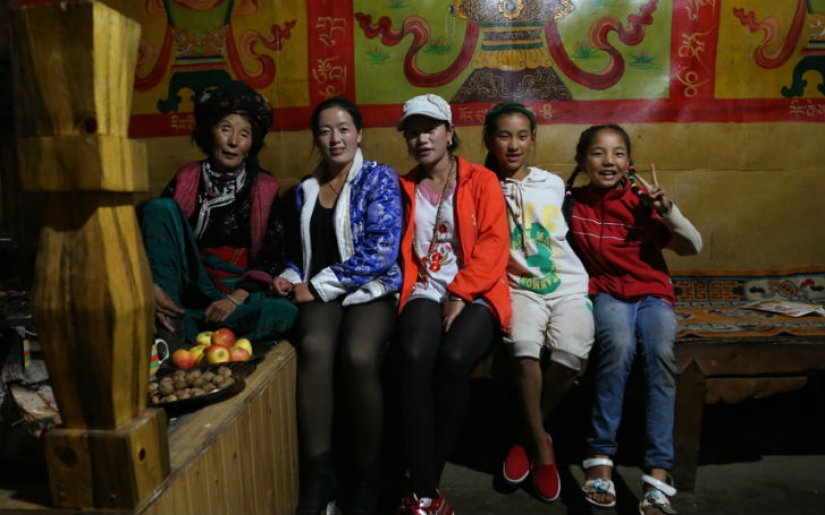
The traditional Moso family — three generations of women live together in the same house. According to the clothes, you can already notice the modern world gradually penetrating into the life of Moso — only the grandmother of the family is dressed in a traditional costume. It was these women in national clothes who lived an incredibly difficult life on the shores of Lake Luguhu, never leaving its limits. Now the younger generation is torn between honoring traditions and the opportunities to study at schools and universities that have opened up.
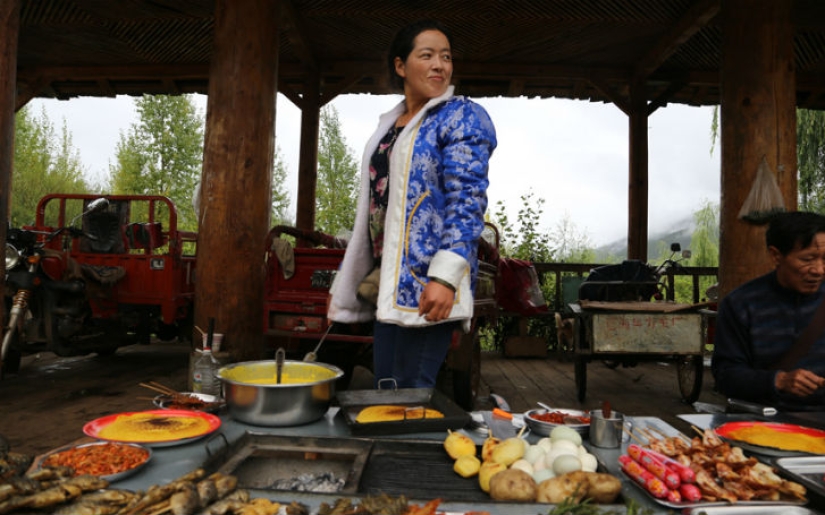
In the photo, 33-year-old Lusu. She still lives according to the traditions of her tribe, but already earns money from tourism, since she can neither read nor write. 80% of young people leave their families to get an education in big cities, where they often stay after getting married. Moso speak the dialect "na", but the people do not have a written language.
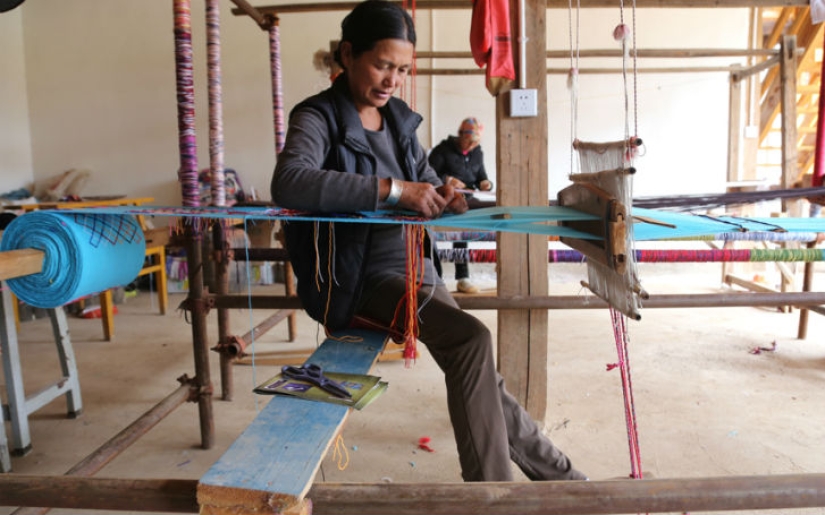
Clothes and blankets made by hand by this woman are sold all over the world. Previously, needlework played an important role in the Moso culture, but now these traditions are under threat of extinction.
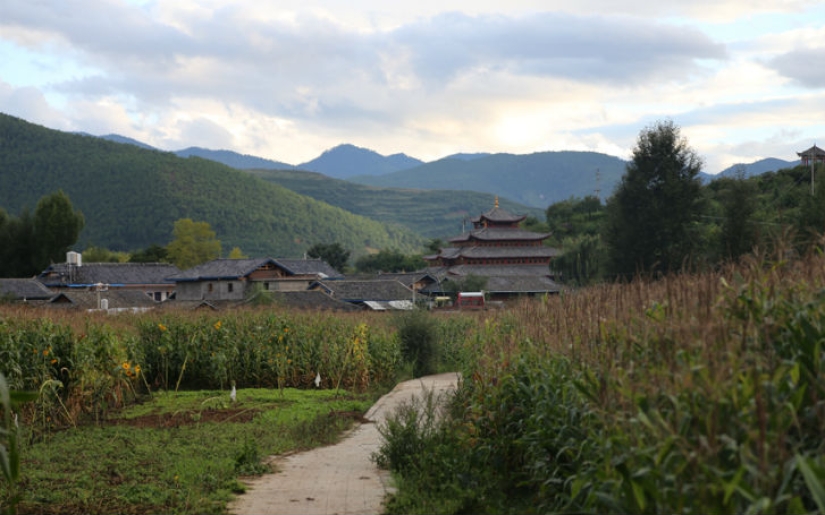
Moso villages are surrounded by fields of corn, sunflowers and potatoes. Each house fully provides itself with food that the family grows. Unfortunately, the region where the Moso live is undergoing significant changes - a highway and an airport are being built nearby, and more and more tourists are arriving to see the surroundings and the unique way of life of the tribe.
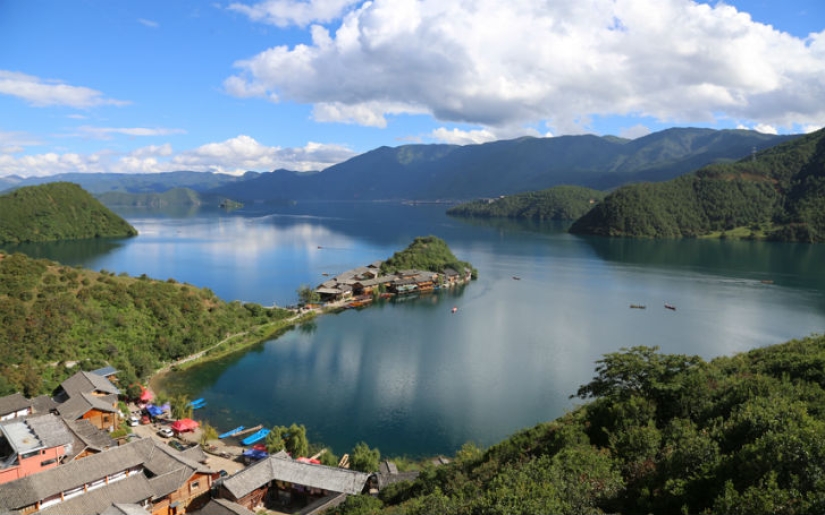
Moso villages on the shores of Lake Luguhu.
Keywords: Himalayas | Documentary | Women | China | Lifestyle | Traditions
Post News ArticleRecent articles

It's high time to admit that this whole hipster idea has gone too far. The concept has become so popular that even restaurants have ...

There is a perception that people only use 10% of their brain potential. But the heroes of our review, apparently, found a way to ...
Related articles

Tired after a hard day at work? Suffer from autumn depression? Don't know how to entertain yourself in your free time? This ...

Motherhood significantly changes a woman's body. But there are more profound changes affecting the nature and Outlook. Reflected in ...

American artist Lee Price is sure that eating is a completely natural process, but many are ashamed of their attitude to food, ...

New Year's is a time to surprise and delight loved ones not only with gifts but also with a unique presentation of the holiday ...